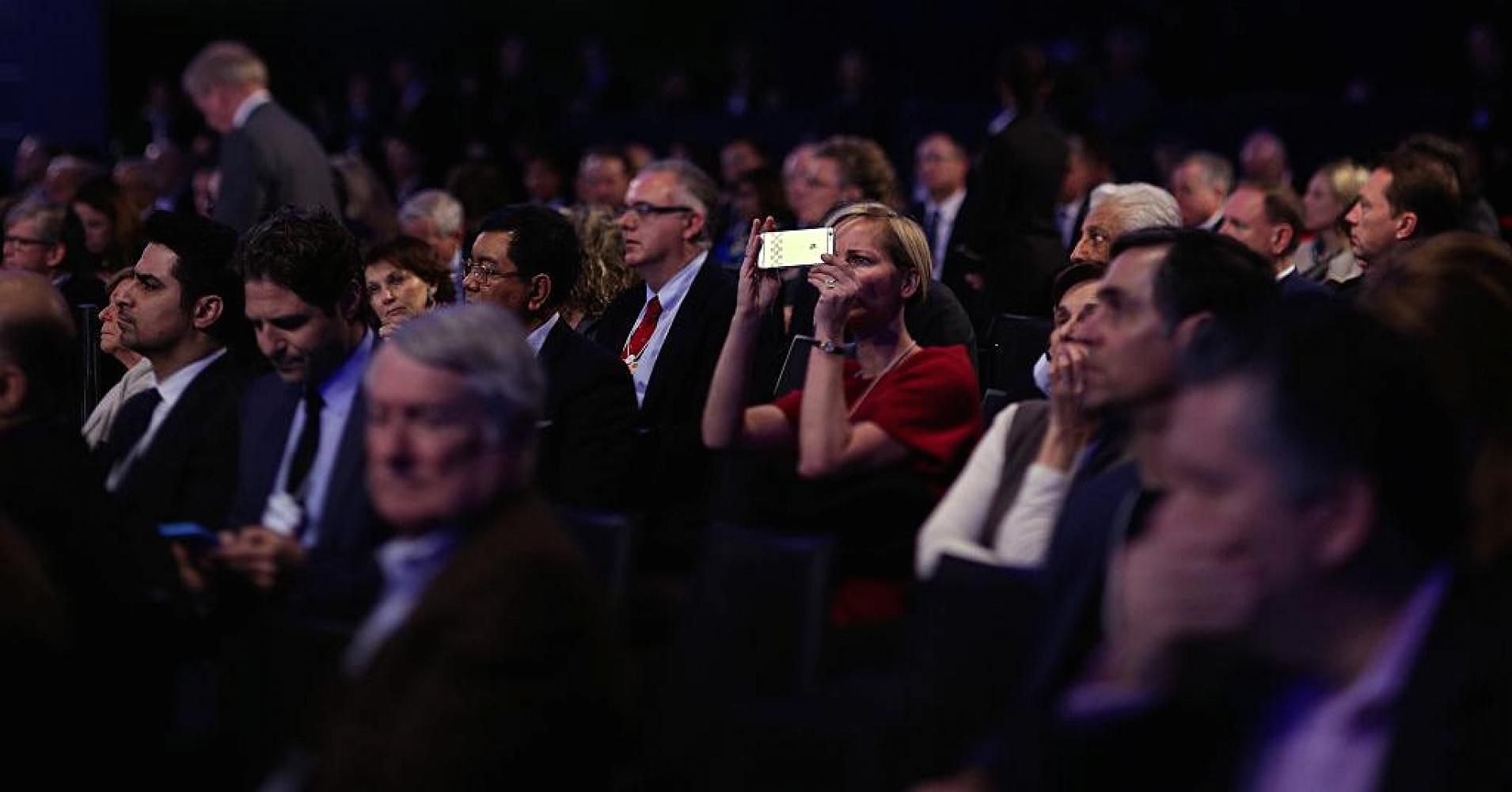
Anyone watching or reading media coverage of the upcoming 2018 World Economic Forum (WEF) is bound to come across the terms “Davos Man” or “Davos Woman,” but who are these mysterious figures?
Davos is the Swiss Alpine resort where the Forum is held every year, and has been since its inception in 1971, and the name of the town has become largely interchangeable with WEF itself.
For this reason, “Davos Man” has itself become synonymous with a stereotyped figure of a typical participant of the Forum — rich and powerful, perhaps out of touch, but most of all representative of the global elite.
The phrase “Davos Man” was credited to Samuel P Huntington, a political scientist who spent the majority of his working life at Harvard University. In 2004, he wrote a paper about elites and “an emerging global superclass” of “Davos men” or “gold-collar workers.”
“The rewards of an increasingly integrated global economy have brought forth a new global elite. Labeled ‘Davos Men,’ ‘gold-collar workers’ or… ‘cosmocrats’, this emerging class is empowered by new notions of global connectedness. It includes academics, international civil servants and executives in global companies, as well as successful high-technology entrepreneurs,” Huntington wrote, citing an estimation that this elite would total 40 million people by 2010.
He said such global elites “have little need for national loyalty, view national boundaries as obstacles that thankfully are vanishing, and see national governments as residues from the past whose only useful function is to facilitate the elite’s global operations.”
Huntington added that such individuals were defined by their “involvement in transnational institutions, networks and activities” and that “someone whose loyalties, identities and involvements are purely national is less likely to rise to the top in business, academia, the media and the professions than someone who transcends these limits.”
Despite the origin of the term, to encompass a globalized perspective, it has become somewhat broader in its application and is applied to the typical attendee — generally, a rich and powerful or influential man.
“Davos Woman” is also spoken of, but as only 21 percent of WEF’s 3,000 or so participants are women, the phrase is used a lot less.
WEF aims to bring together what it calls “stakeholders” in both public and private organizations and sectors, although membership is not cheap and certainly not for the less well-heeled.
Membership and partnership fees range from 60,000 Swiss francs ($62,243) to 600,000 Swiss francs, “depending on the level of engagement.” Non-business participants in the meeting — from heads of state to leaders of the arts — do not pay to participate, however.
WEF has a loft ambition to “improve the state of the world” and it hopes to do so by enabling its attendants to discuss the world’s problems and, in an ideal world, come to a shared conclusion on the action needed to resolve issues such as climate change, global inequality and poverty, to name but a few.
There has been a backlash against the globalization representative of WEF and Davos men and women, however, with the rise of nationalism and politicians such as Donald Trump who promotes an “America First” policy, and public backlashes against big government, such as the Brexit vote in the U.K. that was seen as a reaction against “the elite,” albeit an elusive and undefined one.
In business too, “Davos Man” and “Davos Woman’s” days might be numbered. In 2017, Bank of America Merrill Lynch strategists said the term “Davos Man” was becoming redundant as investors moved away from the global investing themes of Wall Street, typified by “Davos Man.”
Instead, the strategists saw a shift towards “Joe Six-Pack,” an “every man,” everyday investor who was domestically focused.

